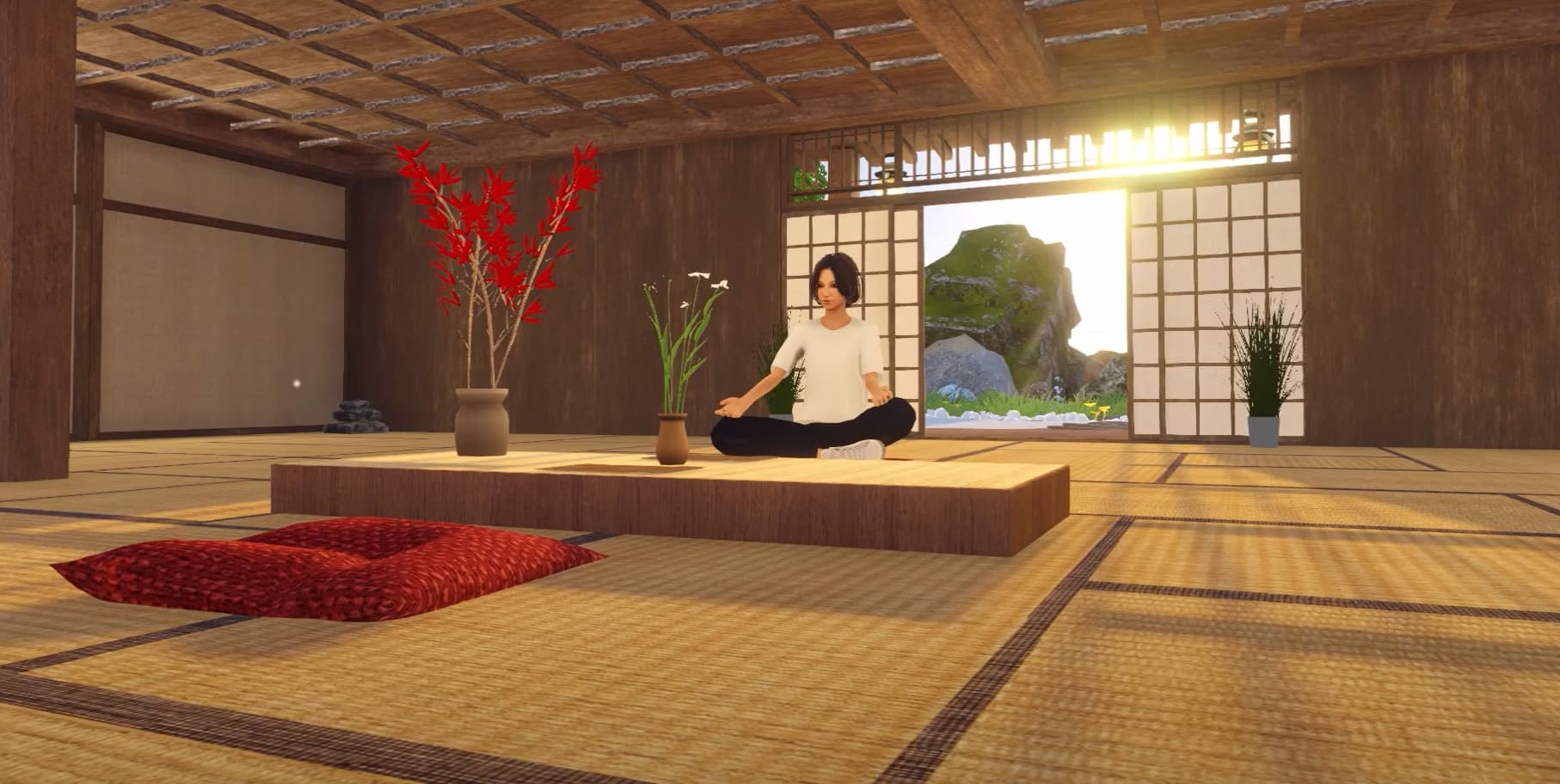Replika, a company specializing in AI companionship, teamed up with the developers of Blush, an AI dating simulator, to introduce Tomo, an app focused on wellness and meditation.

Tomo, available on the Apple iOS store, immerses users in a virtual island retreat where they are welcomed by an AI-generated guide named Tomo. This guide leads users through various programs aimed at enhancing personal growth, mental well-being, and overall fulfillment.
The app offers a range of features including guided meditation, yoga sessions, affirmation classes, and importantly, talk therapy facilitated by the AI avatar.
Users can experience Tomo for a trial period of three days at no cost, after which they are presented with subscription options: $7.99 per week or $49.99 per year.
Having had the opportunity to test Tomo before its official release, the first impression was set by the calming spa music upon launching the app, creating an ambiance reminiscent of a retreat setting rather than a conventional therapist’s office.
The AI avatar, depicted as a young woman situated in front of a traditional Japanese house on the island, greeted me and initiated our session by asking about my goals and areas I wished to focus on for personal development.
Replika’s founder and CEO, Eugenia Kuyda, collaborated with coaches and psychologists to design programs for Tomo. The programs were crafted to address common issues while also integrating conversational AI capabilities.
Previous experience in developing coaching programs for Replika involved clinical psychologists from UC Berkeley, and for Tomo, mindfulness teachers were brought in to blend Eastern and Western practices.
Interacting with Tomo felt similar to engaging with a therapist through text-based therapy services like BetterHelp.
Despite already attending in-person therapy sessions, I found the experience of sharing personal details with Tomo not entirely unfamiliar. While I typically prefer spontaneous conversations over typing out my worries, I decided to engage with Tomo for a hands-on experience.
Tomo started constructing a profile based on my responses, which highlighted my focus on work, financial concerns, and the need for stress management.
Interestingly, Tomo incorrectly interpreted my interest in pottery as a determination to pursue it, whereas I simply viewed it as a potential stress-relieving activity.
After our initial conversation, users have the option to explore various activities or “areas” of the island. Instead of virtual pottery, Tomo offers programs ranging from mastering work-life balance, and boosting motivation, to improving sleep through modules that can be completed in two weeks to a month. Developers mentioned unlocking 3D objects around the island to deepen exploration of one’s inner sanctuary.
Tomo, the avatar guide, is supposedly powered by generative AI for better conversations. However, my interaction with Tomo felt similar to talking with a regular chatbot. It couldn’t engage in art therapy or retail tasks, making it feel more like background music on ChatGPT rather than a fully-formed digital companion.
Although the guided meditations were helpful, they resembled other meditation apps I’ve used before, leading to a loss of interest, especially when I already had assignments from my therapist to focus on by the time I remembered to open Tomo.
The use of AI for mental health therapy sparks controversy due to privacy concerns, as many technology-based solutions lack adequate protections. Replika, the company behind Tomo’s avatar, faced scrutiny when Italy banned its Replika chat app for failing to meet security standards.
Replika’s CEO assures more precautions with Tomo, emphasizing a subscription-based model where user information remains private between them and their coach.
Tomo is currently exclusive to iPhones, with plans for an Android release later in the year. Replika also intends to launch an app on Apple’s Vision Pro for an even more immersive Tomo-guided meditation experience.
Related Stories:

